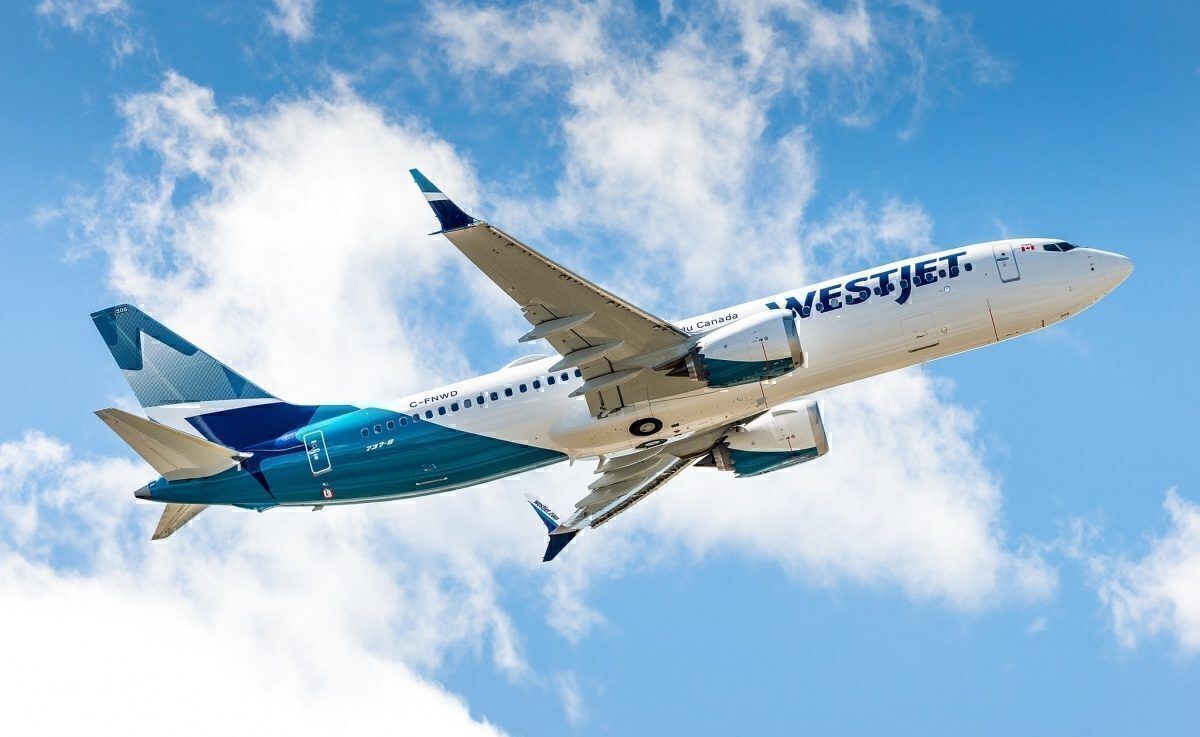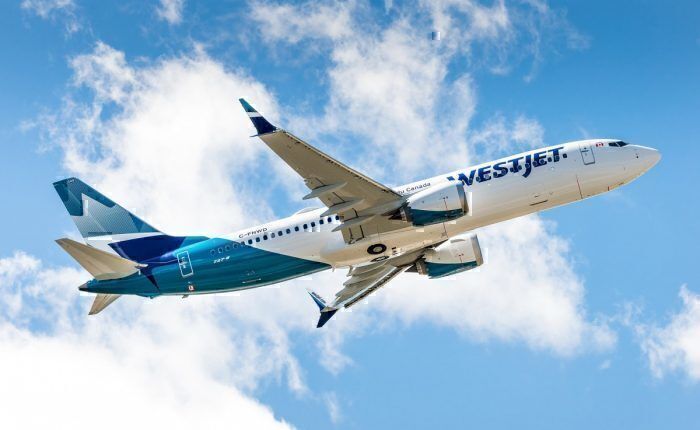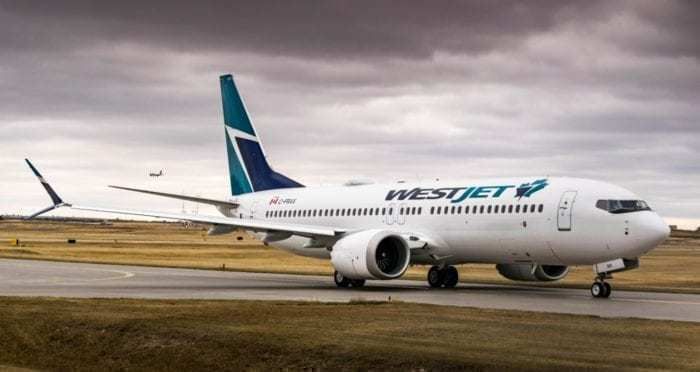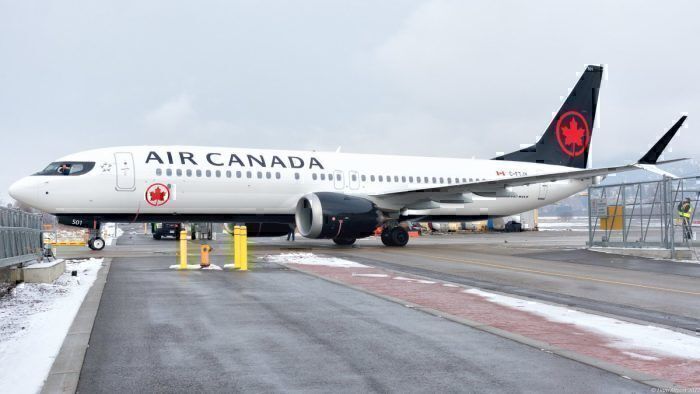Canadian carrier WestJet has announced it will remove all Boeing 737 MAX flights from its timetables until 4th November. The decision adds a further three months to WestJet’s 737 MAX cancellation period, which currently runs until August, and has seen a total of 3,661 flights abandoned so far.
The Boeing 737 MAX fiasco continues to impact airlines and passengers alike. Both WestJet and United Airlines were reported today by Business Traveller as being forced to make route cancellations due to aircraft shortages.
With a total of 14 737 MAX in its inventory, United’s service from Chicago to León, Mexico will be put on hiatus from September. WestJet, which operates a total of 13 737 MAX, will reduce and suspend some routes, including Toronto-Kelowna, Vancouver-Regina and Halifax-Paris.
Bad news for WestJet
Making up around 10% of the carrier’s seat capacity, the loss of its 13 Boeing 737 MAX has come at a bad time for WestJet. The carrier is currently preparing for a $3.5 billion acquisition by Canadian private equity firm Onex Corporation.
WestJet has managed to cover almost 6,000 of its 9,225 737 MAX flights scheduled since the worldwide 737 MAX grounding on 13th March, according to a blog post by WestJet Chief Operating Officer, Jeff Martin.
In a phone interview with Global News, WestJet CEO Ed Sims said that the airline has seen a “substantial negative impact” from the loss of its 13 Boeing 737 MAX.
Despite the 737 MAX setback, WestJet posted revenue of $1.21 billion for the three months ending 30th June 2019. This revenue increase has been largely buoyed by an increase in passenger numbers for Canada’s second-largest carrier.
The 737 MAX grounding for Canadian customers
WestJet isn’t the only Canadian airline which has been affected by the 737 MAX grounding. WestJet competitor and Canada’s largest carrier, Air Canada, announced plans for an even longer delay of 737 MAX services until at least 8th January 2020.
As a result, Air Canada predicts a 2% drop in capacity for Q3 of 2019 in comparison to Q3 of 2018. This is a sizeable drop from the projected 3% increase in capacity predicted for Q3 of 2019 before the 737 MAX grounding was announced.
WestJet’s route adjustments for the remainder of the year will see temporary cancellations of all Halifax-Paris and Vancouver-Regina services. Toronto-Kelowna services have been suspended for September and October, and the Toronto-St. John’s route will now only operate two flights daily instead of its usual three.
With regards to staffing alterations as a result of the 737 MAX grounding, Air Canada announced that it will not be hiring any new staff for the remaining 26 737 MAX it has on order with Boeing until the situation is clarified.
As reported by the Montreal Gazette, Air Canada Chief Financial Officer Mike Rousseau told analysts that the airline currently has many pilots who are not flying as a result of the groundings, saying,
“Obviously this is not exactly the most efficient use of their talent and skill, because they are not flying. That has added somewhat to our costs.”




